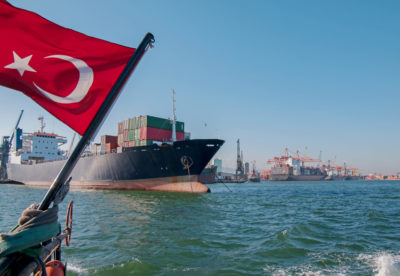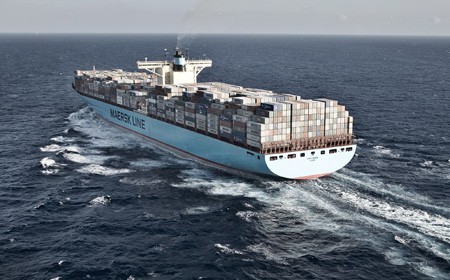The Environment Agency has updated its Broadly Equivalent Standards guidance which provides exporters of used cardboard and plastics, waste batteries or WEEE with information on rules governing exports to overseas sites and to ensure these are in line with UK regulations.
First published in March 2015, the document says it “provides examples of acceptable evidence that exporters can use to prove that overseas sites are operating to equivalent standards as the UK”.
This was updated by the Environment Agency this morning, 24 August, making changes for the requirements of Bangladesh, China, Hong Kong, Indonesia, Sri Lanka, Turkey and Ukraine, while also adding Kosovo.
Documents
The document states that for all exporter approval applications, evidence must relate to the overseas reprocessing site in the application and refer to the reprocessing activity and conditions it needs to operate.
This must also have an official stamp on the original document from the competent authority.
Exporters must also be aware of other domestic and EU legislation, commercial or local controls which may apply in states of transit or destination.
China
For China, the guidance confirms that the country is banning all solid waste imports from 1 January 2021 and an import licence is considered acceptable evidence until then, such as a Ministry of Environmental Protection licence or State Environmental Protection Administration of China licence, which is “clearly scanned with visible water markings”.
Other documents are also required.
Turkey

The document states that for Turkey, evidence is required for batteries and WEEE regimes only (Picture: Shutterstock)
The document states that for Turkey, evidence is required for batteries and WEEE regimes only, and this is regulated by the Regulated by the Ministry of Environment and Urbanisation.
Before a load can be released from the customs area, a Compliance Certificate is needed.
“The local Provincial Directorate of Environment will issue this after they have done a physical inspection of the material and paperwork,” the document says.
The agencies compliance monitoring will include checking if an import permit specifies the European Waste Catalogue code of the material being exported.
The update seems not to affect plastic imports from the UK, which will come as a relief to some as Turkey has emerged as a key market for recycled plastic recently.
Ukraine
Ukraine has also emerged as a key market for many recyclates in Europe. In the country, this is regulated by the Ministry of Energy and Environmental Protection (MEEP). Exporters will either need an import approval letter or licence issued by MEEP, or a letter proving they are exempt. The import approval letter must name the UK exporter.
Indonesia
The Environment Agency says it “understands” that a contamination limit up to a maximum of 2% is in place in Indonesia, which was outlined in June (see letsrecycle.com story).
This came as a slight relief for some, as there were fears this could be as low as 0.5%. An import licence issued by the Ministry of Trade in consultation with the Ministry of Environment is required, and is valid for one year.
All imports of any hazardous waste must be inspected in the loading country by an inspection company appointed or approved by the Indonesian Competent Authority.
Malaysia
Malaysia came to the public gaze as an export destination in recent months after it announced a “world first” expatriation of waste sent to the country for recycling (see letsrecycle.com story) .
For waste plastics, exporters must have a permit issued by the Department of National Solid Waste Management.
For all other exports, traders should have a scheduled waste treatment and disposal facility certificate or environmental impact assessment with clear approval conditions
Confusion
However, there is some confusion in the guidelines as export rules are not always clear.
“A ban on waste plastics is scheduled for 2021, but the agencies have been told that a ban may already be in effect”
For example, in Thailand, WEEE imports are banned indefinitely. The export of WEEE derived materials and waste plastics to Thailand is “under notification controls”.
A ban on waste plastics is scheduled for 2021, according to the document, “but the agencies have been told that a ban may already be in effect”.
In Vietnam, a ban on waste paper is also due in 2025, the document says, but local import controls “may apply to waste plastics and paper”.
The document can be seen here.
The post Equivalent Standards for waste exports updated appeared first on letsrecycle.com.
Source: letsrecycle.com Plastic



